Ökonometrische Methoden für wirtschaftliche Prognosen und Simulationen
Der Forschungsschwerpunkt der Forschungsgruppe liegt in der Entwicklung ökonometrischer Methoden für Kurzfristprognosen (Reduzierte-Form-Modelle), für Regionalisierung und für Langfristprojektionen sowie für strukturelle Prognose- und Simulationsmodelle (DSGE-Modelle). Ferner erstellt sie ökonometrische Hintergrundanalysen für die Prognosetätigkeit der Forschungsgruppe Makroökonomische Analysen und Prognosen. Im Rahmen von Drittmittelprojekten wurden verschiedene makroökonomische Modelle, bspw. für die Volkswagen Financial Services AG oder im Rahmen von GIZ-Projekten für die Wirtschaftsministerien in Kirgistan und Tadschikistan sowie das Institut für makroökonomische Prognosen und Forschung (IFMR) in Usbekistan entwickelt.
IWH-Datenprojekt: IWH Real-time Database
Forschungscluster
Wirtschaftliche Dynamik und StabilitätIhr Kontakt

Mitglied - Abteilung Makroökonomik
PROJEKTE
07.2022 ‐ 12.2026
Evaluierung des InvKG und des Bundesprogrammes STARK
Bundesministerium für Wirtschaft und Klimaschutz (BMWK)
Im Auftrag des Bundesministeriums für Wirtschaft und Klimaschutz evaluieren das IWH und das RWI die Verwendung der rund 40 Milliarden Euro, mit denen der Bund die Kohleausstiegsregionen unterstützt.
10.2019 ‐ 01.2023
An Klimawandel angepasste Wirtschaftsentwicklung
Deutsche Gesellschaft für Internationale Zusammenarbeit (GIZ) GmbH
Der Klimawandel wirkt sich stark auf das Wirtschaftswachstum und die Entwicklung eines Landes aus. Das erhöht den Bedarf an verlässlichen und realisierbaren Ansätzen, mit denen die Auswirkungen von Klimarisiken und potenzielle Anpassungsszenarien bewertet werden können. Die politischen Entscheidungsträger*innen in den Planungs- und Wirtschaftsministerien benötigen fundierte Prognosen, um entsprechende wirtschaftspolitische Instrumente zu konzipieren, zu finanzieren und aktiv gegenzusteuern. In den Pilotländern Kasachstan, Vietnam und Georgien werden Klimarisiken bei der makroökonomischen Modellierung berücksichtigt. Die Ergebnisse werden so in den Politikprozess integriert, dass angepasste Wirtschaftsplanungen entstehen können. Das IWH-Team ist verantwortlich für die makroökonomische Modellierung in Vietnam.
05.2020 ‐ 09.2023
ENTRANCES: Energy Transitions from Coal and Carbon: Effects on Societies
Europäische Kommission
Ziel von ENTRANCES ist es, die Folgen des Kohleausstiegs in Europa zu untersuchen. Wie verändert der Kohleausstieg die Gesellschaft – und wie kann Politik darauf reagieren?
This project has received funding from the European Union’s Horizon 2020 research and innovation programme under grant agreement No 883947.
01.2018 ‐ 12.2023
EuropeAid (EU-Rahmenvertrag)
Europäische Kommission
07.2016 ‐ 12.2018
Klimaschutz und Kohleausstieg: Politische Strategien und Maßnahmen bis 2030 und darüber hinaus
Umweltbundesamt (UBA)
01.2017 ‐ 12.2017
Unterstützung einer nachhaltigen Wirtschaftsentwicklung in ausgewählten Regionen Usbekistans
Deutsche Gesellschaft für Internationale Zusammenarbeit (GIZ) GmbH
01.2017 ‐ 12.2017
Short-term Macroeconomic Forecasting Model in Ministry of Economic Development and Trade of Ukraine
Deutsche Gesellschaft für Internationale Zusammenarbeit (GIZ) GmbH
01.2016 ‐ 12.2017
Entwicklung eines analytischen Tools basierend auf einer Input-Output-Tabelle
Deutsche Gesellschaft für Internationale Zusammenarbeit (GIZ) GmbH
Das Ziel des Projektes war die Entwicklung eines Exceltools zur Wirkungsanalyse von Politikmaßnahmen in Tadschikistan basierend auf dem statischen Input-Output-Ansatz.
11.2015 ‐ 12.2016
Beschäftigung und Entwicklung in der Republik Usbekistan
Deutsche Gesellschaft für Internationale Zusammenarbeit (GIZ) GmbH
Förderung einer nachhaltigen wirtschaftlichen Entwicklung in ausgewählten Regionen Usbekistans
05.2016 ‐ 05.2016
Rahmenbedingungen und Finanzierungsmöglichkeiten für die Entwicklung des Privatsektors in Tadschikistan
Deutsche Gesellschaft für Internationale Zusammenarbeit (GIZ) GmbH
02.2016 ‐ 04.2016
Makroökonomische Reformen und umwelt- und sozialverträgliches Wachstum in Vietnam
Deutsche Gesellschaft für Internationale Zusammenarbeit (GIZ) GmbH
Referierte Publikationen
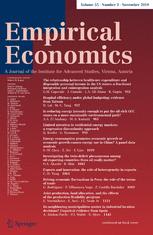
Bottom-up or Direct? Forecasting German GDP in a Data-rich Environment
in: Empirical Economics, Nr. 2, 2018
Abstract
In this paper, we investigate whether there are benefits in disaggregating GDP into its components when nowcasting GDP. To answer this question, we conduct a realistic out-of-sample experiment that deals with the most prominent problems in short-term forecasting: mixed frequencies, ragged-edge data, asynchronous data releases and a large set of potential information. We compare a direct leading indicator-based GDP forecast with two bottom-up procedures—that is, forecasting GDP components from the production side or from the demand side. Generally, we find that the direct forecast performs relatively well. Among the disaggregated procedures, the production side seems to be better suited than the demand side to form a disaggregated GDP nowcast.
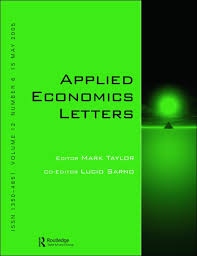
The European Refugee Crisis and the Natural Rate of Output
in: Applied Economics Letters, Nr. 16, 2017
Abstract
The European Commission follows a harmonized approach for calculating structural (potential) output for EU member states that takes into account labour as an important ingredient. This article shows how the recent huge migrants’ inflow to Europe affects trend output. Due to the fact that the immigrants immediately increase the working population but effectively do not enter the labour market, we illustrate that the potential output is potentially upward biased without any corrections. Taking Germany as an example, we find that the average medium-term potential growth rate is lower if the migration flow is modelled adequately compared to results based on the unadjusted European Commission procedure.

Impulse Response Analysis in a Misspecified DSGE Model: A Comparison of Full and Limited Information Techniques
in: Applied Economics Letters, Nr. 3, 2016
Abstract
In this article, we examine the effect of estimation biases – introduced by model misspecification – on the impulse responses analysis for dynamic stochastic general equilibrium (DSGE) models. Thereby, we use full and limited information estimators to estimate a misspecified DSGE model and calculate impulse response functions (IRFs) based on the estimated structural parameters. It turns out that IRFs based on full information techniques can be unreliable under misspecification.
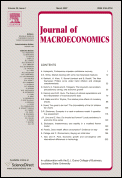
Effects of Incorrect Specification on the Finite Sample Properties of Full and Limited Information Estimators in DSGE Models
in: Journal of Macroeconomics, June 2016
Abstract
In this paper we analyze the small sample properties of full information and limited information estimators in a potentially misspecified DSGE model. Therefore, we conduct a simulation study based on a standard New Keynesian model including price and wage rigidities. We then study the effects of omitted variable problems on the structural parameter estimates of the model. We find that FIML performs superior when the model is correctly specified. In cases where some of the model characteristics are omitted, the performance of FIML is highly unreliable, whereas GMM estimates remain approximately unbiased and significance tests are mostly reliable.
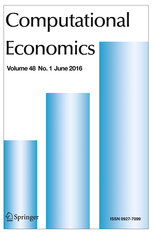
Testing for Structural Breaks at Unknown Time: A Steeplechase
in: Computational Economics, Nr. 1, 2013
Abstract
This paper analyzes the role of common data problems when identifying structural breaks in small samples. Most notably, we survey small sample properties of the most commonly applied endogenous break tests developed by Brown et al. (J R Stat Soc B 37:149–163, 1975) and Zeileis (Stat Pap 45(1):123–131, 2004), Nyblom (J Am Stat Assoc 84(405):223–230, 1989) and Hansen (J Policy Model 14(4):517–533, 1992), and Andrews et al. (J Econ 70(1):9–38, 1996). Power and size properties are derived using Monte Carlo simulations. We find that the Nyblom test is on par with the commonly used F type tests in a small sample in terms of power. While the Nyblom test’s power decreases if the structural break occurs close to the margin of the sample, it proves far more robust to nonnormal distributions of the error term that are found to matter strongly in small samples although being irrelevant asymptotically for all tests that are analyzed in this paper.
Arbeitspapiere
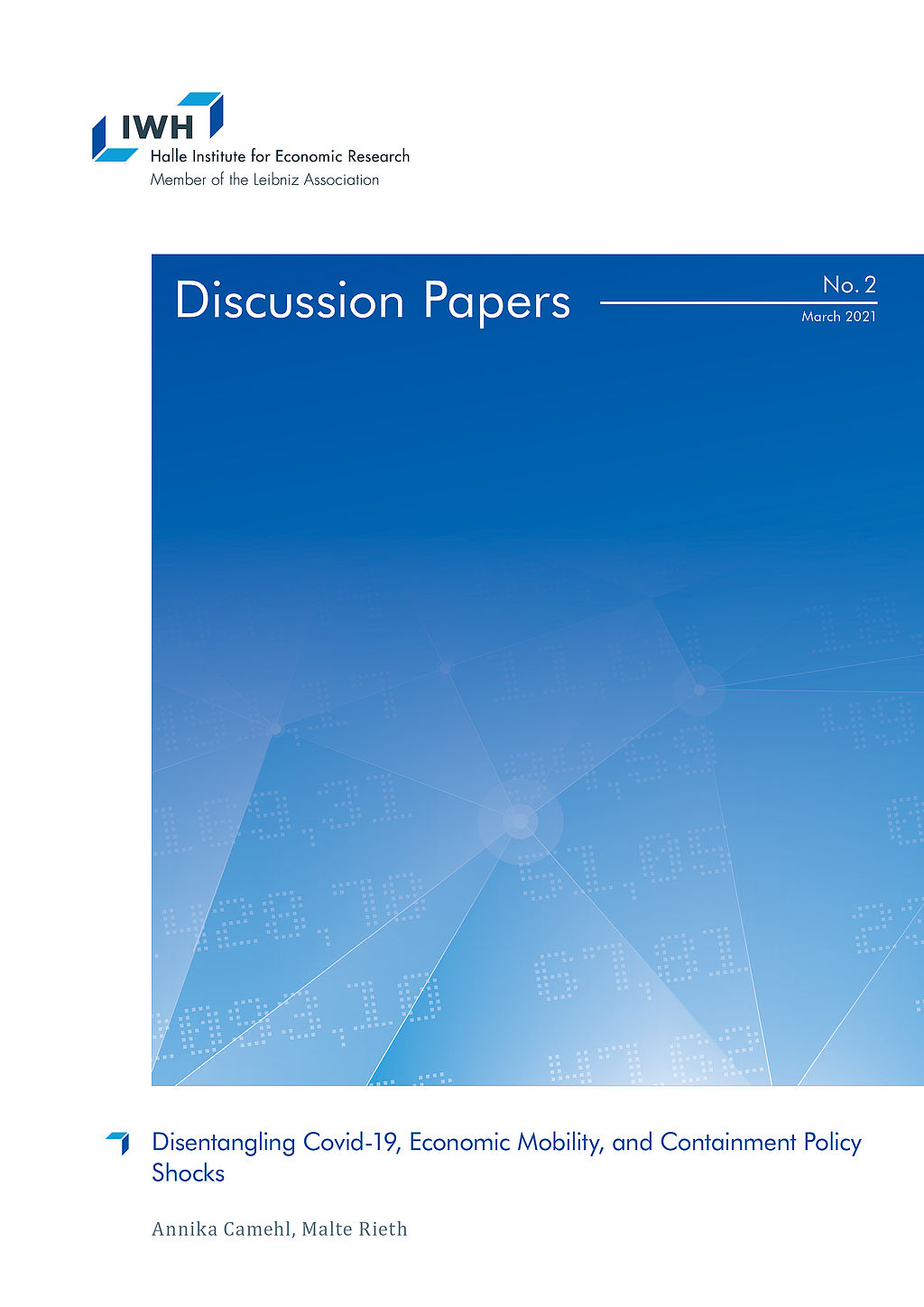
Disentangling Covid-19, Economic Mobility, and Containment Policy Shocks
in: IWH Discussion Papers, Nr. 2, 2021
Abstract
We study the dynamic impact of Covid-19, economic mobility, and containment policy shocks. We use Bayesian panel structural vector autoregressions with daily data for 44 countries, identified through sign and zero restrictions. Incidence and mobility shocks raise cases and deaths significantly for two months. Restrictive policy shocks lower mobility immediately, cases after one week, and deaths after three weeks. Non-pharmaceutical interventions explain half of the variation in mobility, cases, and deaths worldwide. These flattened the pandemic curve, while deepening the global mobility recession. The policy tradeoff is 1 p.p. less mobility per day for 9% fewer deaths after two months.
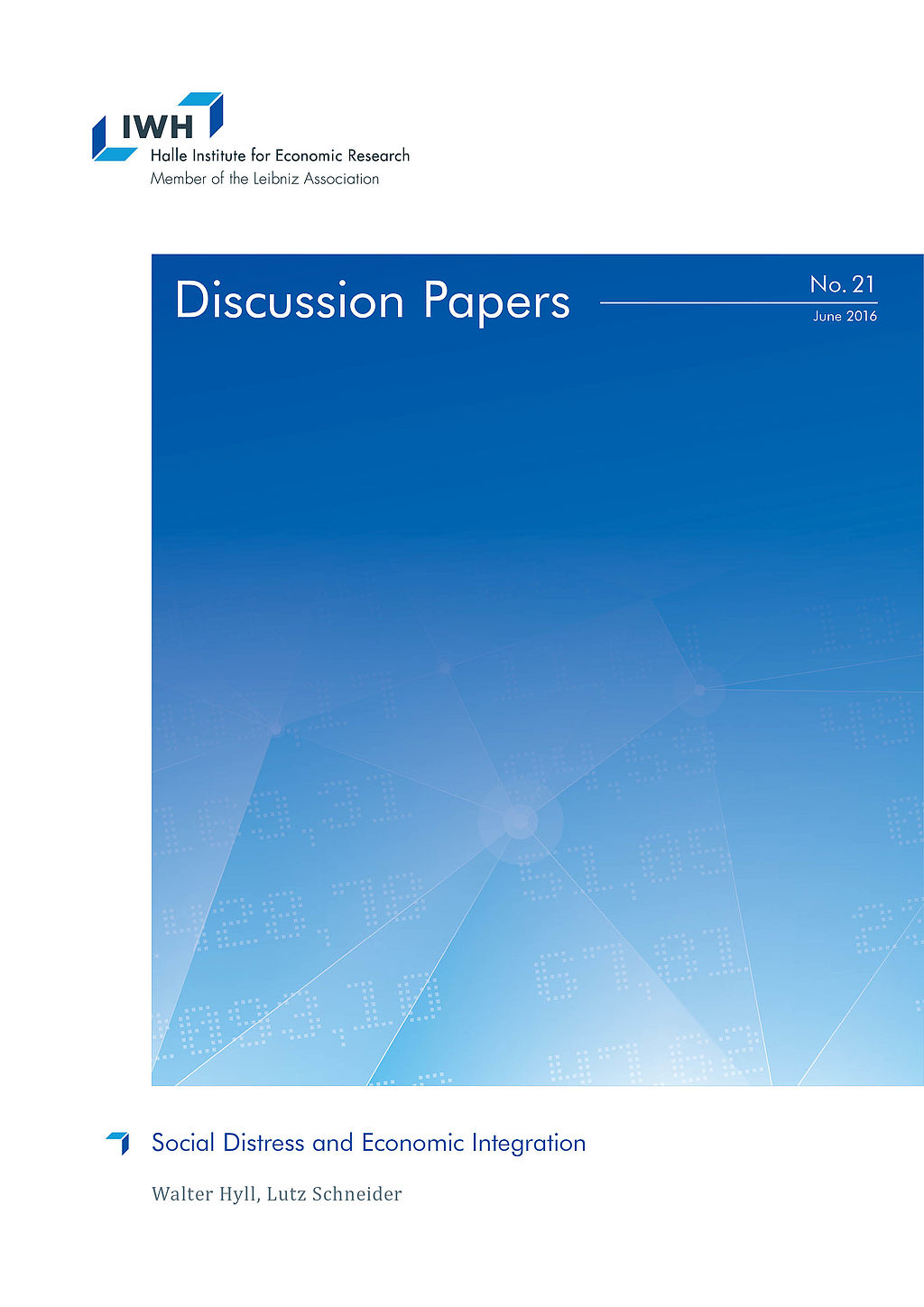
Exchange Rates and the Information Channel of Monetary Policy
in: IWH Discussion Papers, Nr. 17, 2020
Abstract
We disentangle the effects of monetary policy announcements on real economic variables into an interest rate shock component and a central bank information shock component. We identify both components using changes in interest rate futures and in exchange rates around monetary policy announcements. While the volatility of interest rate surprises declines around the Great Recession, the volatility of exchange rate changes increases. Making use of this heteroskedasticity, we estimate that a contractionary interest rate shock appreciates the dollar, increases the excess bond premium, and leads to a decline in prices and output, while a positive information shock appreciates the dollar, decreases prices and the excess bond premium, and increases output.
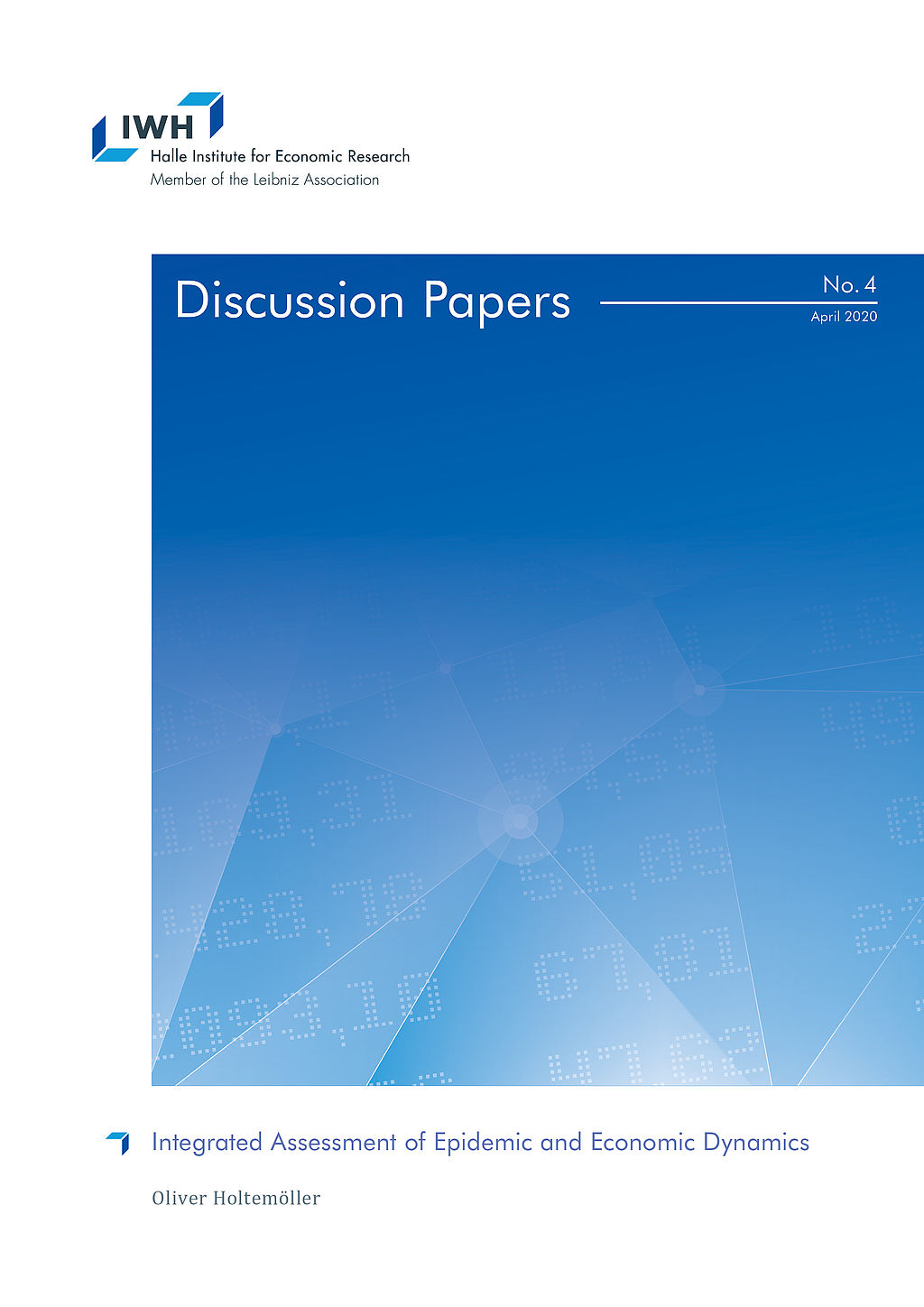
Integrated Assessment of Epidemic and Economic Dynamics
in: IWH Discussion Papers, Nr. 4, 2020
Abstract
In this paper, a simple integrated model for the joint assessment of epidemic and economic dynamics is developed. The model can be used to discuss mitigation policies like shutdown and testing. Since epidemics cause output losses due to a reduced labor force, temporarily reducing economic activity in order to prevent future losses can be welfare enhancing. Mitigation policies help to keep the number of people requiring intensive medical care below the capacity of the health system. The optimal policy is a mixture of temporary partial shutdown and intensive testing and isolation of infectious persons for an extended period of time.
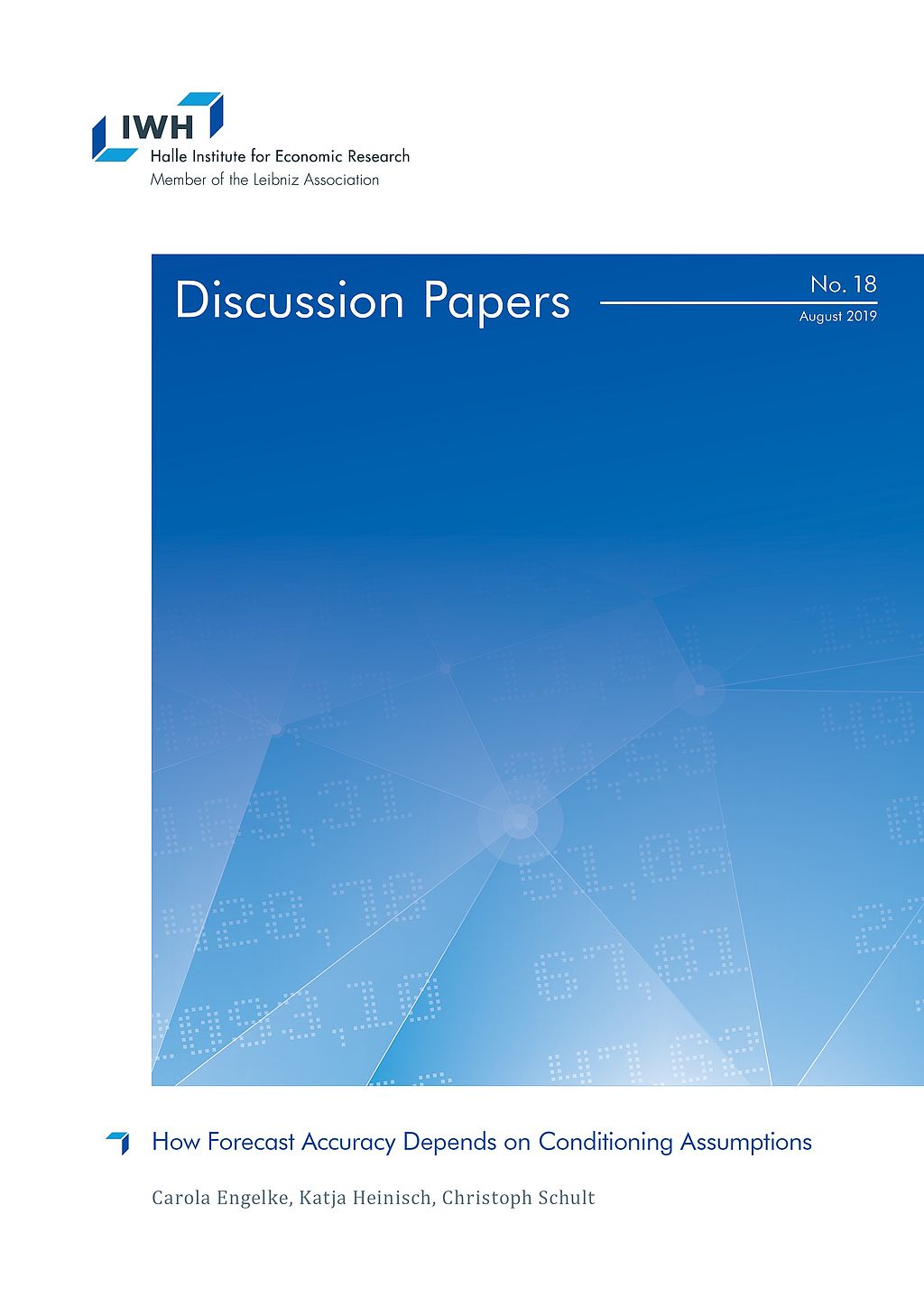
How Forecast Accuracy Depends on Conditioning Assumptions
in: IWH Discussion Papers, Nr. 18, 2019
Abstract
This paper examines the extent to which errors in economic forecasts are driven by initial assumptions that prove to be incorrect ex post. Therefore, we construct a new data set comprising an unbalanced panel of annual forecasts from different institutions forecasting German GDP and the underlying assumptions. We explicitly control for different forecast horizons to proxy the information available at the release date. Over 75% of squared errors of the GDP forecast comove with the squared errors in their underlying assumptions. The root mean squared forecast error for GDP in our regression sample of 1.52% could be reduced to 1.13% by setting all assumption errors to zero. This implies that the accuracy of the assumptions is of great importance and that forecasters should reveal the framework of their assumptions in order to obtain useful policy recommendations based on economic forecasts.
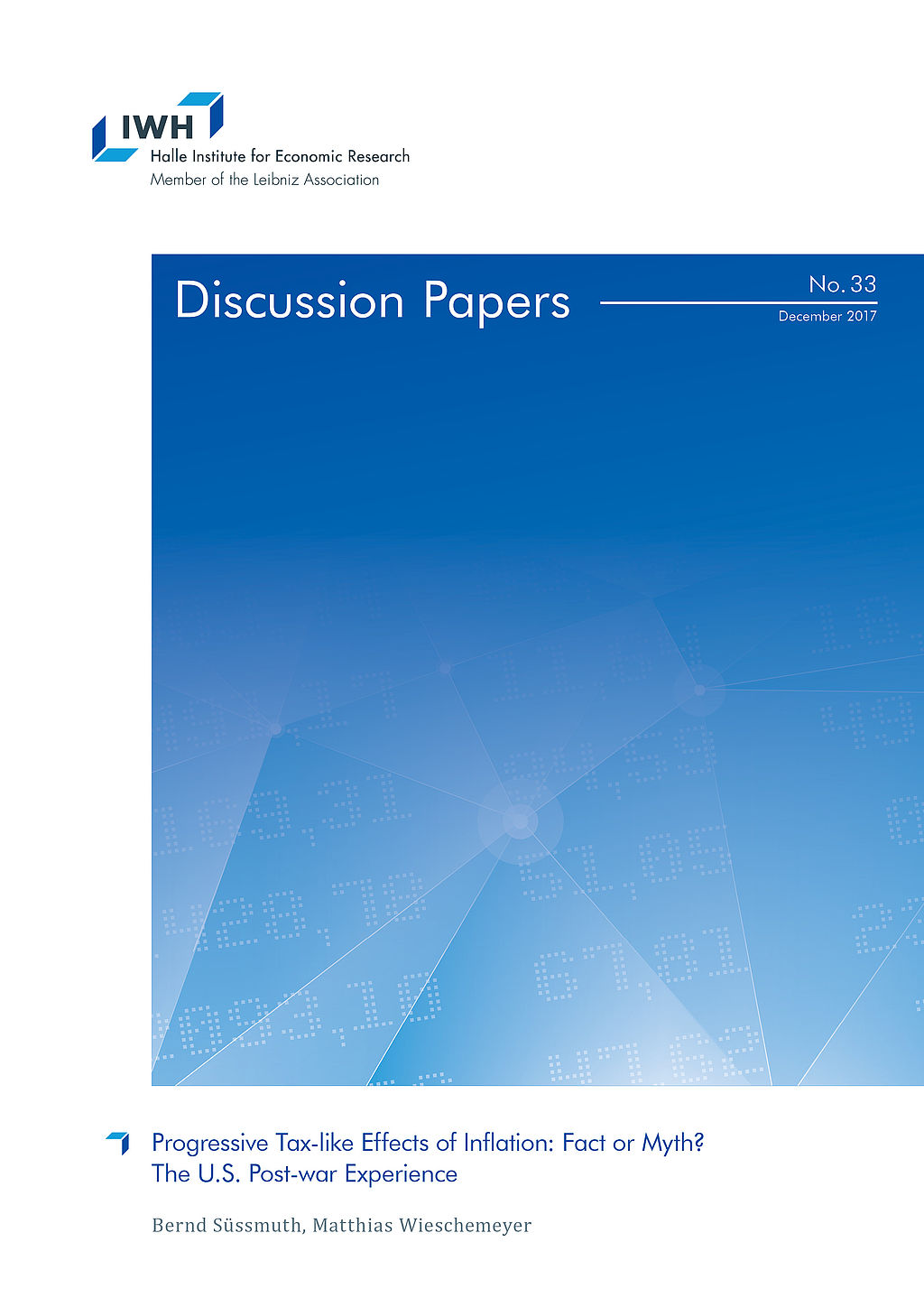
Progressive Tax-like Effects of Inflation: Fact or Myth? The U.S. Post-war Experience
in: IWH Discussion Papers, Nr. 33, 2017
Abstract
Inflation and earnings growth can push some tax payers into higher brackets in the absence of inflation-indexed schedules. Moreover, inflation may affect the composition of individuals’ income sources. As a result, depending on the relative tax burden of labour and capital, inflation may decrease or increase the difference between before-tax and after-tax income. However, whether some and if so which percentiles of the income distribution net benefit from inflation via taxation is a widely unexplored question. We make use of a novel dataset on U.S. pre-tax and post-tax income distribution series provided by Pike ty et al. (2018) for the years 1962 to 2014 to answer this question. To this end, we estimate local projections to quantify dynamic effects. We find that inflation shocks increase progressivity of taxation not only contemporaneously but also with some repercussion of several years after the shock. While particularly the bottom two quintiles gain in share, it is not the top but the fourth quintile that lastingly loses.

















